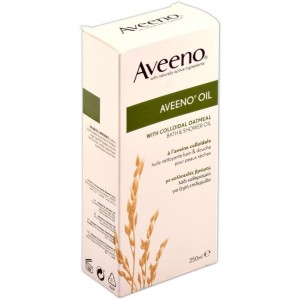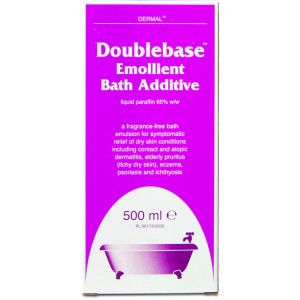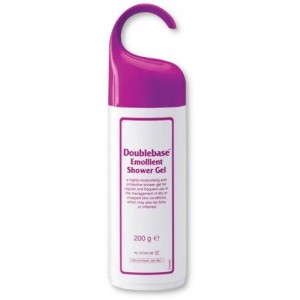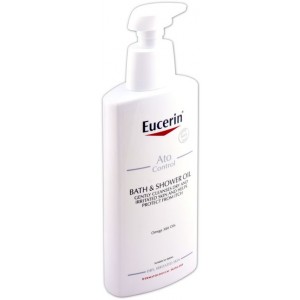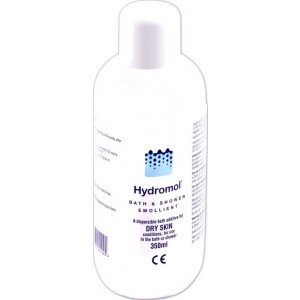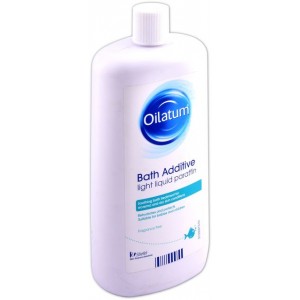Dry skin
Dry skin can be an irritating and sometimes painful condition. But there are a number of ways you can prevent your skin from drying out and rehydrate the affected areas. Read on to find out more about what causes dry skin and the measures you can take to prevent it.
Aveeno Bath & Shower Oil
- Contains natural colloidal oats
- Soothes itchy and dry skin
- Available without prescription
Doublebase Bath Emollient
- Rehydrates skin
- Locks in moisture
- Prevents bacterial infection
Doublebase Emollient Shower Gel
- Deters dry skin
- Easy to use
- Hooked top for easy storing
Eucerin Bath & Shower Oil
- Rehydrated dry skin
- Softens skin
- Soothes itching
Hydromol Bath & Shower Emollient
- Prevents skin from drying out
- Available without prescription
- Eligible for next-day delivery.
Oilatum Bath Additive
- Replenishes protective layer
- Helps the skin retain moisture
- Eases itching and irritation
Table of contents
What is dry skin?
Dry skin is a condition which can affect anybody at any age; though it is more common in the ageing population, it occurs in men and women equally.
Known medically as Xerosis cutis, it is predominantly diagnosed based on the signs and symptoms. Sometimes, a skin sample may be tested in a laboratory to determine whether fungal culture or other infections could be a contributing factor.
Symptoms of dry skin can include:
- Cracked or broken skin
- Feeling of tightness
- Itching or discomfort
- White flaking skin
Areas such as the hands, feet, knees and elbows are commonly affected, as these areas are often the most exposed to dry air. When dry skin is present on the face, it can cause wrinkling and the appearance of premature ageing.
Eczema & Dermatitis
Eczema - also referred to as dermatitis - is a condition which causes dry, itchy patches of skin. While the condition is not contagious, it can be passed on hereditarily.
It is most common for eczema to affect the inside of joints, such as the back of the knees, the inside of the elbow and the hands. However, eczema can appear anywhere on the skin.
Eczema can develop alongside other immune conditions, such as asthma and hay fever.
Common triggers of eczema include cleaning solutions, stress and the weather. Understanding what triggers your eczema can help you to manage your condition more effectively.
There are a variety of treatments for eczema, including topical products you apply to your skin, systematic treatments such as tablets, or clinical therapies, including light therapy.
Psoriasis
Psoriasis causes red, flaky patches of skin covered in silver scales, accompanied by a stinging or burning sensation rather than an intense itch.
The exact cause of psoriasis is not known, though it is believed that genetics and immune conditions may play a part in it. Symptoms of psoriasis may also be triggered by conditions including skin injuries such as cuts, infections or medications like lithium.
Psoriasis is a chronic (long-term) condition which develops intermittently. Symptoms may be absent for a while but can return or worsen for a while.
Psoriasis is not contagious.
While there is no cure for psoriasis, there are various treatments which can help you to manage it, such as creams, gels and other medications.
What causes dry skin?
Dry skin conditions can be caused by various factors, including underlying health conditions, hygiene habits, allergies, or medications.
Cells beneath the skin are terminated in a process called cornification. Keratin converts the internal compounds of the cells to provide a stronger structure as they are pushed to the surface of the epidermis. During the conversion process, the nucleus of the cell is destroyed.
The layers of closely packed together dead cells, also called corneocytes, are surrounded by proteins and lipids (natural oils and fats), which create an impermeable seal around the cells. But the permeability of the natural oils is not perfect.
Most commonly, water can strip away the natural oils on the surface of the skin, leaving the skin exposed. Soaps only accelerate the problem. The soap molecules bind to the protective oils and allow them to mix with the water and wash them away.
Chemicals, such as ethanol (alcohol), break down the lipid barrier of the skin.
When the lipid layer is washed away or broken down, it exposes the skin to irritants.
In some cases, especially in older people, the amount of oil on the skin is diminished, leading to dehydration within the skin. As a result, the affected skin is more prone to cracking and breaking, opening up the skin to infections.
What treatments are available for dry skin?
There are a number of treatments specifically designed to treat skin, such as Aveeno or Hydromol. These treatments prevent the natural oils found on your skin from being washed away.
As a result, the oils stay on your skin for longer and provide a longer-lasting barrier, locking in the moisture within the epidermis.
Treatments for dry skin are often used like a bar of soap and are applied during your regular ablutions. While lotions and gels are applied directly onto the skin, there are some treatments which are formulated as a bathing solution.
Are emollients the same as soap?
Unlike soaps, emollients do not bind to the lipids to wash them away.
Emollients, such as Doublebase, contain substances which create a protective barrier on the outermost layer of skin. They act almost like a replacement for the skin's natural lipid barrier, protecting the skin from external irritants and preventing water from escaping the skin.
Over time, emollients - and occlusives, which block water from evaporating - allow the skin to rehydrate naturally. This causes the skin to feel smoother and softer while also relieving itching and irritation.
Emollients are used before or after a bath to be most effective. This is to either;
- prevent the skin from drying out while washing or showering
- lock in the moisture to keep your skin from drying out after a shower or bath
You can use regular soaps and shower gels in conjunction with emollients. You may benefit from gentle or moisturising soaps if your skin is sensitive or in areas affected by dry skin conditions like psoriasis or dermatitis.
How can I prevent dry skin?
Taking shorter, cooler showers can help your skin retain many of its natural oils and prevent it from drying out. Using a conservative amount of gentle shower gel or soap can also reduce the number of natural oils being washed away.
After a shower, pat your skin dry and apply a moisturiser to keep your skin hydrated. Look for moisturisers which contain petrolatum, mineral oil, glycerin, Shea butter, olive oil or jojoba oil.
If you notice that the skin on your hands becomes more aggravated after getting them wet, such as when you wash up or after using certain chemicals, you may want to consider wearing gloves to prevent your skin from coming into contact with the irritant.
Wash your clothes in hypoallergenic detergent and wear soft fabrics under clothes which are itchy. Silk and cotton are usually more gentle on your skin than polyester.
Additional resources
Fill simple medical questionnaire
Prescriber reviews consultation
Pharmacy reviews the order
Medication sent In discreet packaging
© 2013 - 2024 Al Muhsineen Limited. All Rights Reserved. Registered Pharmacy: 34 Halliwell Road, Bolton BL1 8RL. Registered Office: 254 First Floor, Shearbrow, Blackburn, England, BB1 8DS

